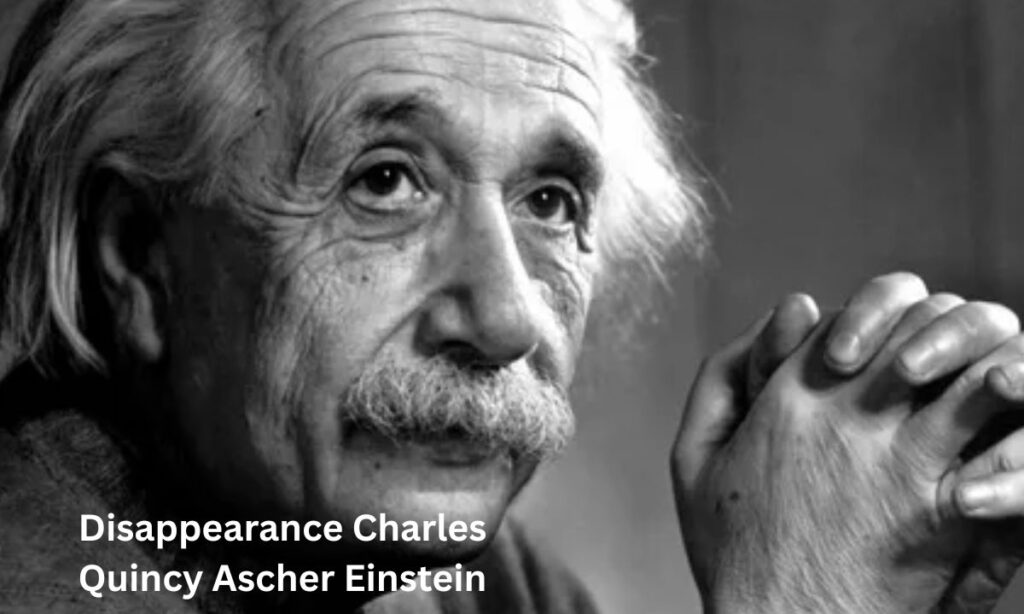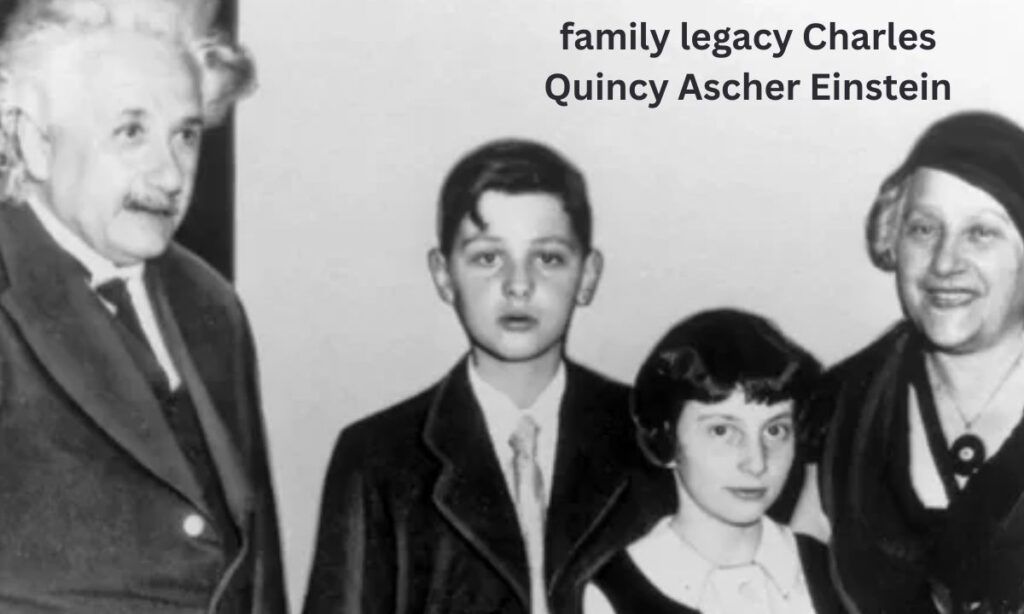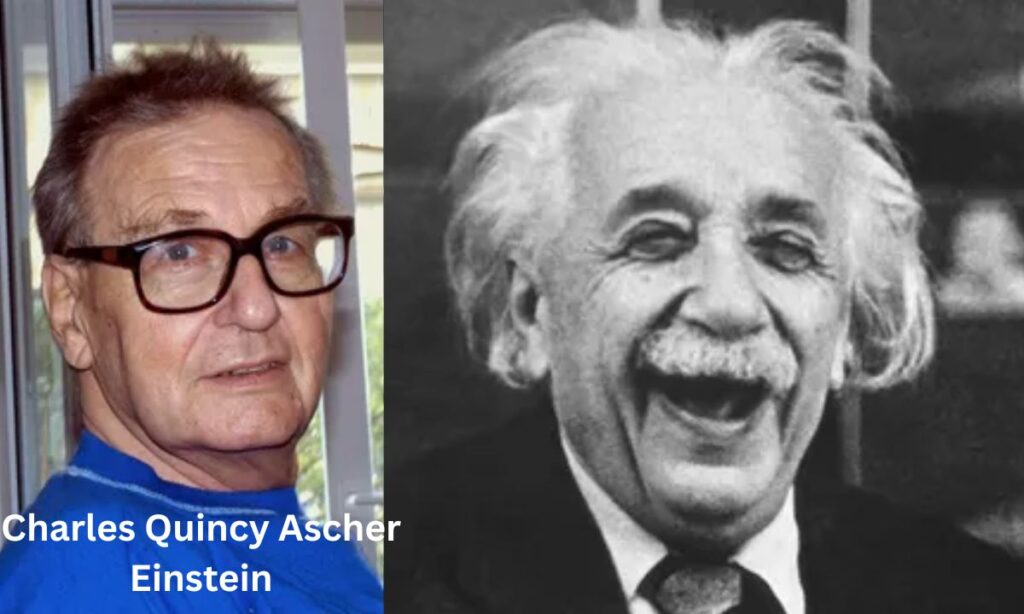Uncover the reality behind Quincy Ascher Einstein — believed to be Albert Einstein’s great-grandson. Uncover facts, debunk myths, and learn about the real Charles Einstein story.The name Charles Quincy Ascher Einstein has become a fascinating puzzle in the digital age.
This mysterious figure has captured public attention, sparking countless searches and discussions across various online platforms. Many people wonder about his connection to the legendary physicist Albert Einstein and whether this individual truly exists.
Recent investigations reveal that the story behind this name is more complex than initially believed. While there is indeed a real person named Charles Einstein within the Einstein family lineage, the addition of “Quincy Ascher” has created confusion and speculation.
This comprehensive analysis examines the facts, separates truth from fiction, and explores why this name has become such a trending topic.
Why the Name Charles Quincy Ascher Einstein Rings a Bell
The name Charles Quincy Ascher Einstein immediately evokes thoughts of brilliance and scientific achievement. This psychological connection stems from our natural association with Albert Einstein’s legendary status in physics and mathematics.
When people encounter this name, they automatically assume a connection to the Einstein legacy.Social media platforms and search engines have amplified this phenomenon. The name appears frequently in discussions about Einstein’s descendants, scientific achievements, and family mysteries.
This widespread visibility has created a feedback loop where more people search for information, leading to increased online presence and speculation.The combination of familiar elements – Charles (a common name), Quincy (suggesting American heritage),
Ascher (possibly Germanic origins), and Einstein (the famous surname) – creates an intriguing blend that captures attention. This naming pattern follows typical conventions for American families with European backgrounds, making it seem authentic and believable.
Unpacking the Truth About the Einstein Lineage
Albert Einstein’s family tree is well-documented through historical records and genealogical research. The legendary physicist, Albert Einstein, had three children with his first wife, Mileva Marić: Lieserl, Hans Albert, and Eduard Einstein.
Lieserl’s fate remains somewhat mysterious, while Eduard struggled with mental health issues and had no children.Hans Albert Einstein, born in 1904, went on to become a respected hydraulic engineer and a professor at the University of California, Berkeley.
He first married Frieda Knecht and later had four children with his second wife, Elizabeth Roboz.Among Hans Albert’s children, only Bernhard Caesar Einstein reached adulthood and carried on the Einstein lineage.
Bernhard Caesar Einstein (1930-2008) worked as an engineer and inventor, specializing in night vision technology.Bernhard married Doris Aude Ascher, and together they had five children:
Thomas, Paul, Eduard, Mira, and Charles. This lineage represents the authentic Einstein family descendants, providing a clear genealogical pathway from Albert Einstein to his great-grandchildren.
| Generation | Name | Birth Year | Profession |
| 2nd | Hans Albert Einstein | 1904 | Hydraulic Engineer |
| 3rd | Bernhard Caesar Einstein | 1930 | Engineer/Inventor |
| 4th | Charles Einstein | 1971 | Private Individual |
| 4th | Thomas Einstein | 1955 | Doctor |
| 4th | Mira Einstein-Yehieli | 1965 | Musician |
Getting to Know Charles Einstein
The real Charles Einstein was born in 1971 in Switzerland and represents the authentic fourth-generation descendant of Albert Einstein. Unlike the mythical figure suggested by online speculation, Charles maintains a remarkably private lifestyle, avoiding public attention and media scrutiny.
Charles has worked in various capacities throughout his career, including managing a computer game store called “Einstein’s World” and serving as a spokesperson for medical institutions. His professional life reflects practical choices rather than following in his great-grandfather’s scientific footsteps. This decision demonstrates his desire to forge his own path while respecting the family legacy.
Despite carrying one of the most famous surnames in history, Charles has chosen to live quietly with his family in Switzerland. He rarely gives interviews or makes public appearances, preferring to maintain personal privacy. This approach allows him to enjoy a normal life while honoring his family’s reputation through dignified discretion.
The Curious Disappearance of Charles Quincy Ascher Einstein

The mystery surrounding Charles Quincy Ascher Einstein becomes more intriguing when examining official records and verified sources. No legitimate genealogical documentation supports the existence of someone with this exact name combination within the Einstein family tree.
Several factors contribute to this mysterious disappearance from official records:
- Lack of birth certificates or official documentation
- Absence from family genealogy maintained by Einstein archives
- Bernhard married Doris Aude Ascher, and together they had five children: Thomas, Paul, Eduard, Mira, and Charles.
- Missing from biographical accounts of Einstein descendants
The digital age has created opportunities for misinformation to spread rapidly. Names can be fabricated, modified, or embellished to create more compelling narratives. This phenomenon particularly affects famous families, where public curiosity drives demand for sensational stories about descendants and their achievements.
What Makes the Name Charles Quincy Ascher Einstein So Misleading?
The constructed nature of Charles Quincy Ascher Einstein becomes apparent through careful analysis of its components. The name combines legitimate elements from the Einstein family history with additions that create a more distinctive and searchable identity online.
“Quincy” adds an American flavor that doesn’t appear in documented Einstein family records. This addition might serve search engine optimization purposes, making the name more unique and memorable. Similarly, emphasizing “Ascher” (from Bernhard’s wife’s maiden name) creates additional complexity that sounds official but lacks verification.
Search engine algorithms favor unique name combinations, making fabricated versions more likely to appear in search results. This technical aspect of digital marketing has contributed to the proliferation of misleading information about Einstein descendants. The strategy exploits public curiosity while generating web traffic and engagement.
Inside a Possible Hidden Life
Theories surrounding Charles Quincy Ascher Einstein frequently focus on the idea of an intentionally concealed life.. Some sources suggest he might be conducting secret research, working on classified projects, or maintaining anonymity for personal safety reasons.
These theories typically lack credible evidence and rely on circumstantial suggestions rather than factual documentation. The appeal of mysterious narratives about Einstein descendants reflects public fascination with genius heredity and scientific dynasties. However, extraordinary claims require extraordinary evidence, which remains absent in this case.
The real Charles Einstein’s choice to maintain privacy has inadvertently fueled these speculative theories. When public figures or their descendants avoid media attention, it often leads to conspiracy theories and fictional narratives that attempt to fill information gaps with sensational content.
Untangling the Misunderstandings
Multiple factors have contributed to widespread confusion about Charles Quincy Ascher Einstein. Internet forums, social media posts, and unofficial websites have perpetuated inaccurate information without proper fact-checking or source verification.
Common misunderstandings include:
- Conflating different Charles Einstein individuals from various time periods
- Mixing biographical details from multiple Einstein family members
- Attributing achievements to the wrong person or generation
- Creating composite characters that combine real and fictional elements
Educational institutions and reputable biographical sources consistently reference only Charles Einstein (without additional names) as Bernhard Caesar Einstein’s son. This consistency across authoritative sources strongly suggests that “Quincy Ascher” represents an unauthorized addition to the authentic name.
How the Einstein Name Gets Exploited by Scammers
The Einstein surname carries tremendous prestige and recognition value, making it attractive for various forms of online exploitation. Scammers and content creators often use famous names to generate clicks, traffic, and engagement without providing accurate information.
Common exploitation tactics include:
- Creating fake biographical articles with sensational headlines
- Developing fictional narratives about hidden Einstein descendants
- Using the name for clickbait content and advertising revenue
- Fabricating scientific achievements or discoveries
- Promoting products or services through false celebrity connections
These practices harm both public understanding and the Einstein family’s reputation. They contribute to misinformation spread while potentially causing emotional distress to real family members who value their privacy and dignity.
The Legacy and Influence of Charles Quincy Ascher Einstein

Despite questions about the name’s authenticity, the Charles Quincy Ascher Einstein phenomenon has influenced online discussions about scientific heredity, family legacy, and information verification. It serves as a case study in how digital misinformation develops and spreads.
The widespread interest in this name reflects broader cultural fascination with genius inheritance and scientific dynasties. People naturally wonder whether exceptional intellectual abilities pass through generations and how famous families handle their inherited responsibilities.
This phenomenon also highlights the importance of digital literacy and fact-checking in the information age. It demonstrates how easily false narratives can gain traction when they align with public expectations and desires for compelling stories.
The Authentic Legacy of the Einstein Family
The genuine Einstein family legacy extends far beyond individual achievements to encompass values of intellectual curiosity, humanitarian concern, and scientific integrity. Albert Einstein’s actual descendants have pursued diverse paths while maintaining respect for their family heritage.
Real Einstein family members have contributed to society through:
- Medical practice (Thomas Einstein)
- Musical performance (Mira Einstein-Yehieli)
- Engineering innovations (Bernhard Caesar Einstein)
- Educational advocacy (various family members)
- Charitable activities and community service
These authentic contributions demonstrate that the Einstein legacy lives on through practical service and professional excellence rather than sensational mystery or fabricated achievements.
Smart Ways to Detect False Information Online
Protecting yourself from misinformation about Charles Quincy Ascher Einstein and similar topics requires developing critical thinking skills and verification habits. It’s essential to consult several trustworthy sources before considering any information to be accurate.
Verification strategies include:
- Cross-referencing information across multiple authoritative sources
- Checking publication dates and author credentials
- Looking for primary source documentation
- Examining the website’s reputation and bias
- Consulting academic and institutional databases
Educational institutions, government archives, and established biographical references provide more reliable information than social media posts or informal websites. When in doubt, prioritize sources with editorial oversight and fact-checking processes.
Why Charles Einstein Keeps a Low Profile
The authentic Charles Einstein has chosen privacy for understandable reasons. Being related to one of history’s most famous scientists brings unwanted attention, unrealistic expectations, and potential exploitation by others seeking to profit from the family name.
Many descendants of famous individuals face similar challenges. They must balance respect for their family heritage with desires for personal autonomy and normal lives. Charles Einstein’s decision to maintain privacy reflects wisdom and self-protection rather than mysterious behavior.
Privacy also protects family members from harassment, unwanted solicitation, and pressure to live up to impossible standards. It allows them to pursue their own interests and careers without constant comparison to their famous ancestor’s achievements.
Lessons We Can Take from the Charles Einstein Story
The Charles Quincy Ascher Einstein phenomenon teaches valuable lessons about information literacy, online safety, and respect for privacy. It demonstrates how easily misinformation can spread when it aligns with public curiosity and expectations.
Key takeaways include:
- Verify information before sharing or believing it
- The privacy of public figures and their families should always be respected.
- Question sensational claims that seem too extraordinary
- Use authoritative sources for biographical information
- Develop critical thinking skills for digital content
These lessons apply beyond this specific case to broader issues of media literacy, online safety, and responsible information consumption in the digital age.
Why Online Awareness and Caution Matter More Than Ever
The digital landscape continues evolving rapidly, creating new opportunities for both information sharing and misinformation spread. Cases like Charles Quincy Ascher Einstein highlight the importance of developing strong digital literacy skills and maintaining healthy skepticism about online content.
Social media algorithms and search engines can amplify false information, making it appear more credible through repeated exposure. This phenomenon requires active effort from users to verify information and think critically about sources and motivations behind content creation.
Educational institutions, parents, and communities share responsibility for teaching digital literacy skills. These skills become increasingly important as artificial intelligence and automated content generation make it easier to create convincing but false information.
Frequently Asked Questions
Is Charles Quincy Ascher Einstein a real person?
The complete name appears to be fabricated, though Charles Einstein (Albert’s great-grandson) is real.
What is Charles Einstein’s actual profession?
He has worked in retail management and as a medical institution spokesperson in Switzerland.
Why doesn’t Charles Einstein seek public attention?
He values privacy and prefers living normally despite his famous family connection.
How can I verify information about Einstein descendants?
Check academic sources, official archives, and established biographical references rather than social media.
What should I do if I encounter false information online?
Report it to platform administrators and avoid sharing unverified content with others.
Conclusion
In the end, the mystery surrounding Charles Quincy Ascher Einstein sheds more light on our digital information landscape than on the Einstein family itself.
While Charles Einstein exists as Albert Einstein’s great-grandson, the elaborate name appears to be an online fabrication designed to generate interest and traffic.
This example highlights how crucial media literacy, verification of facts, and privacy awareness are in today’s connected world.The real Einstein family legacy continues through authentic contributions to society rather than sensational mysteries or fabricated achievements.
By developing better information evaluation skills and maintaining healthy skepticism about extraordinary claims, we can navigate the digital landscape more safely and responsibly while honoring the genuine achievements of remarkable families like the Einsteins.
Read More:Businesstips.com.in



